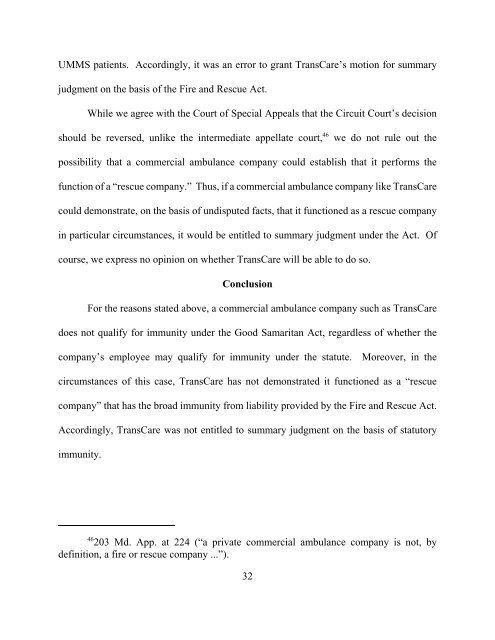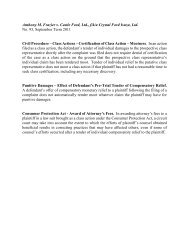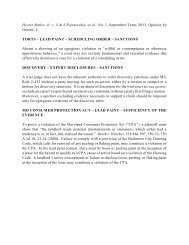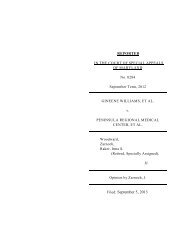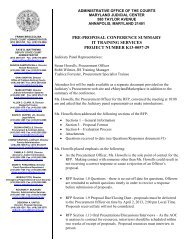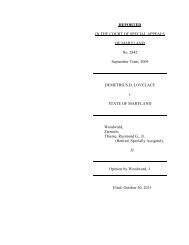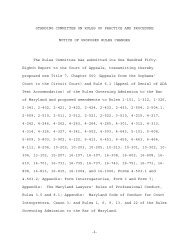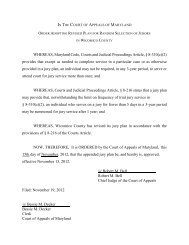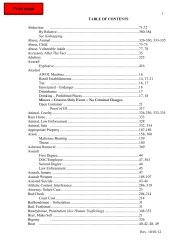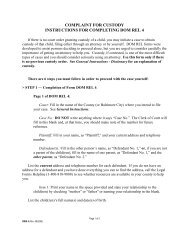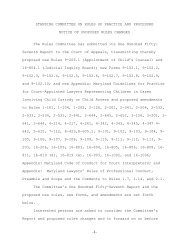24/12 - Maryland Courts
24/12 - Maryland Courts
24/12 - Maryland Courts
Create successful ePaper yourself
Turn your PDF publications into a flip-book with our unique Google optimized e-Paper software.
UMMS patients. Accordingly, it was an error to grant TransCare’s motion for summary<br />
judgment on the basis of the Fire and Rescue Act.<br />
While we agree with the Court of Special Appeals that the Circuit Court’s decision<br />
should be reversed, unlike the intermediate appellate court, 46<br />
we do not rule out the<br />
possibility that a commercial ambulance company could establish that it performs the<br />
function of a “rescue company.” Thus, if a commercial ambulance company like TransCare<br />
could demonstrate, on the basis of undisputed facts, that it functioned as a rescue company<br />
in particular circumstances, it would be entitled to summary judgment under the Act. Of<br />
course, we express no opinion on whether TransCare will be able to do so.<br />
Conclusion<br />
For the reasons stated above, a commercial ambulance company such as TransCare<br />
does not qualify for immunity under the Good Samaritan Act, regardless of whether the<br />
company’s employee may qualify for immunity under the statute. Moreover, in the<br />
circumstances of this case, TransCare has not demonstrated it functioned as a “rescue<br />
company” that has the broad immunity from liability provided by the Fire and Rescue Act.<br />
Accordingly, TransCare was not entitled to summary judgment on the basis of statutory<br />
immunity.<br />
46 203 Md. App. at 2<strong>24</strong> (“a private commercial ambulance company is not, by<br />
definition, a fire or rescue company ...”).<br />
32


